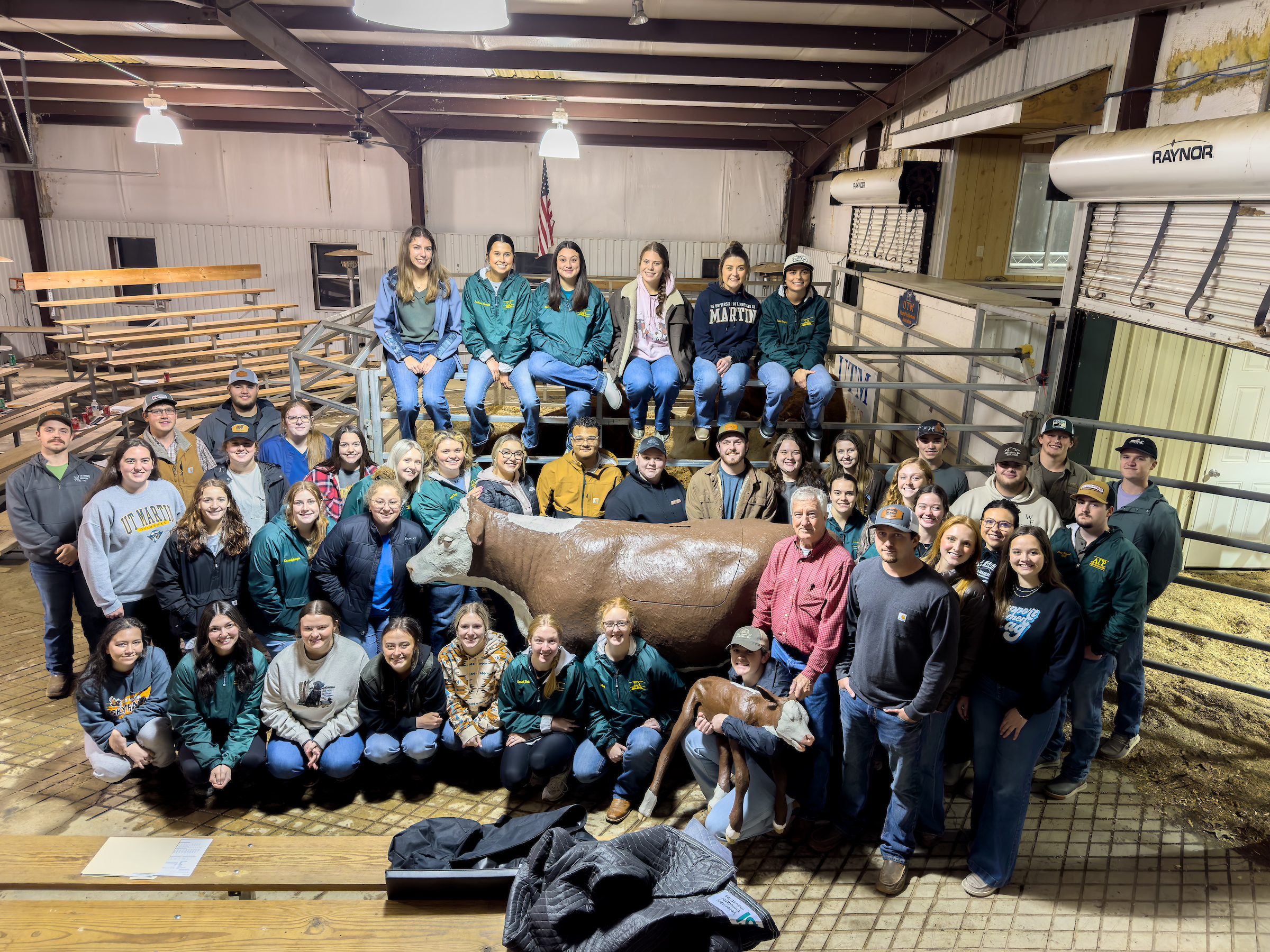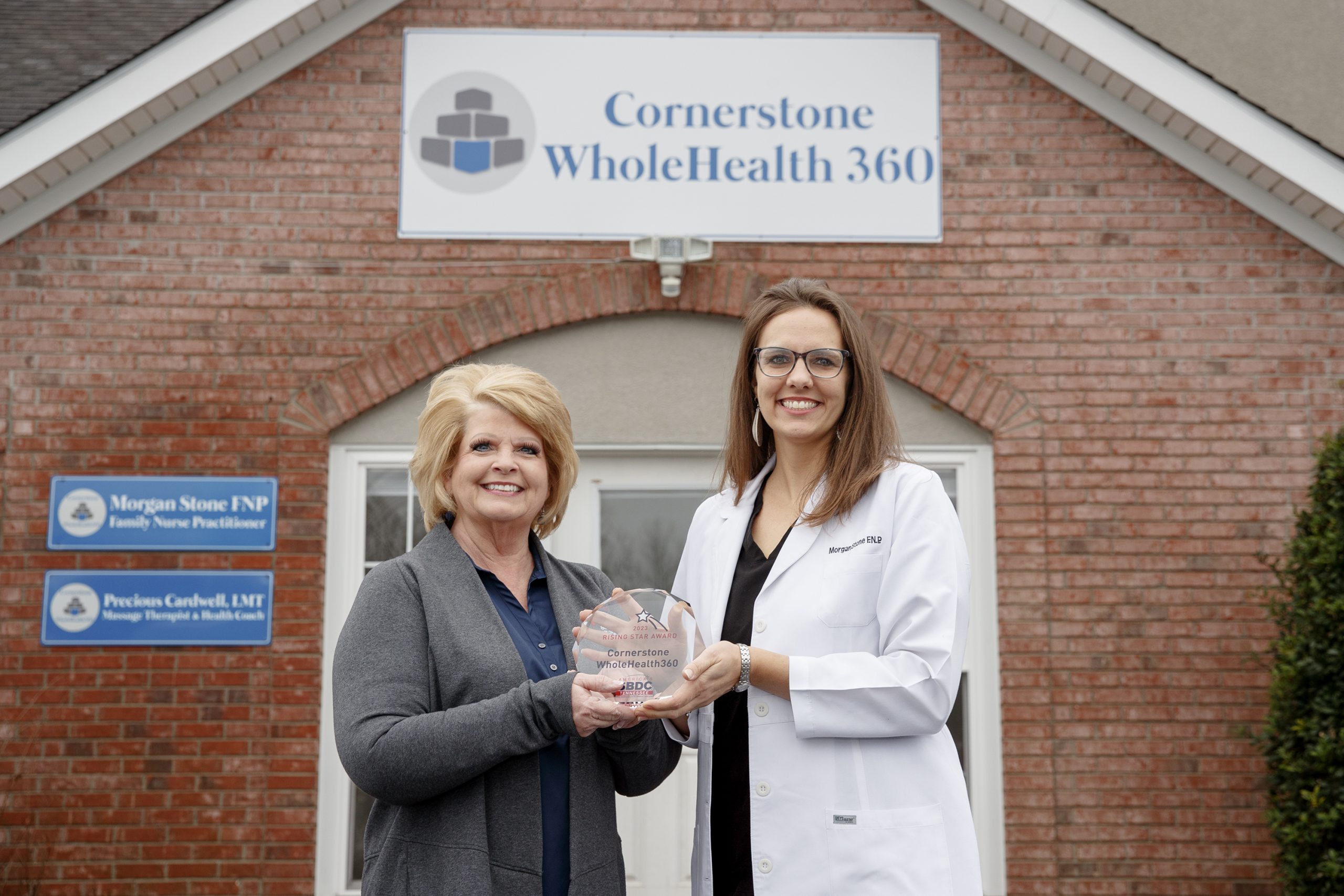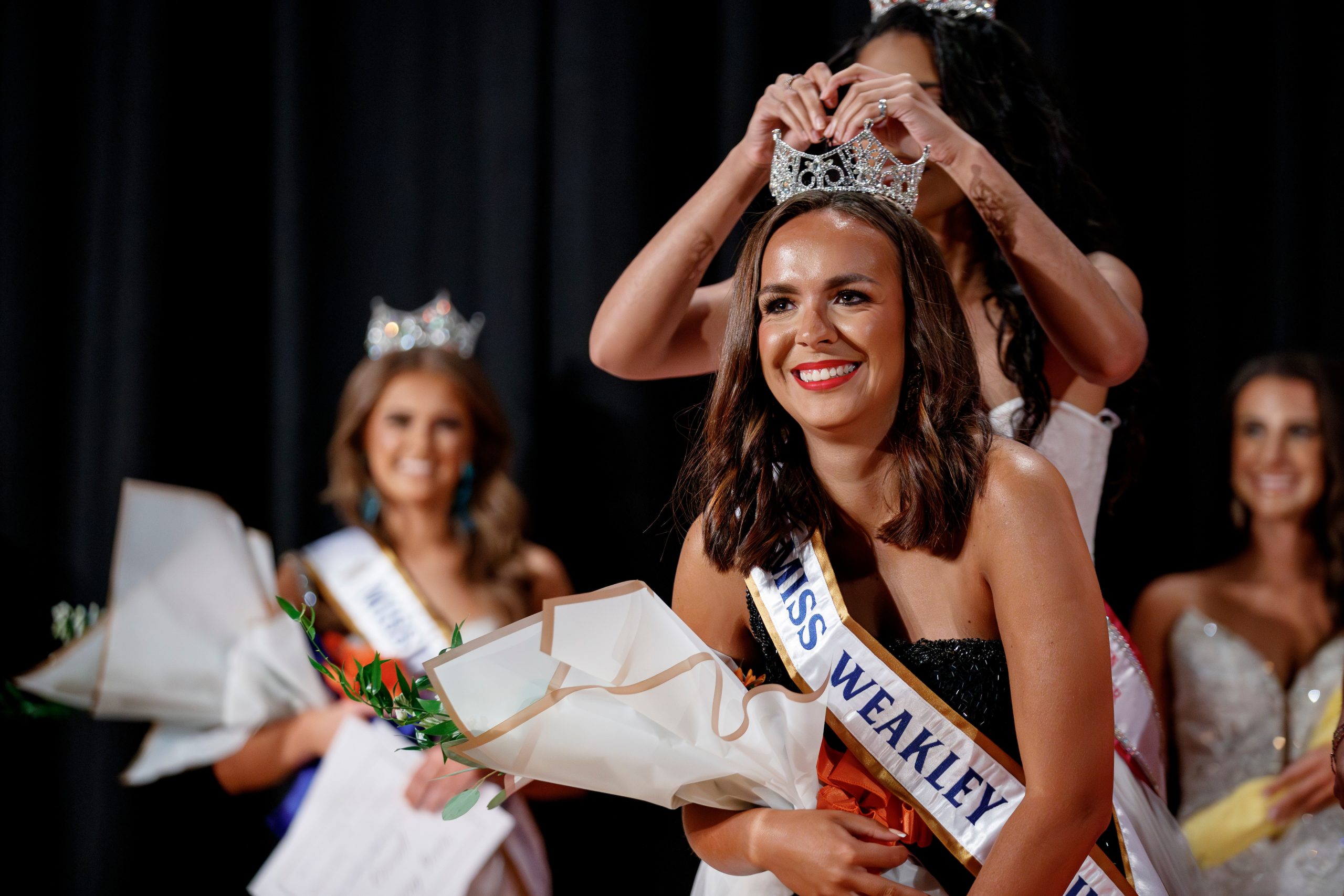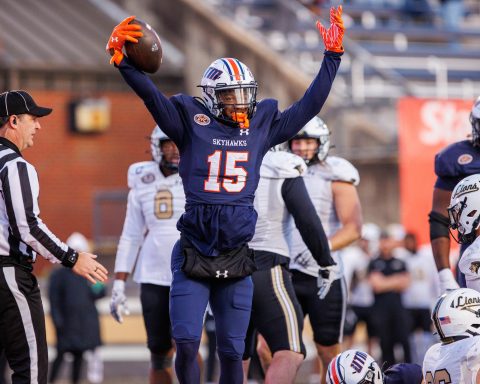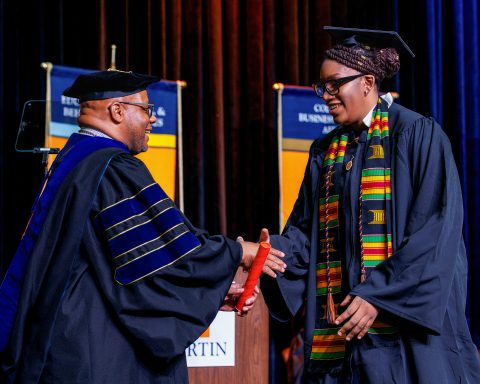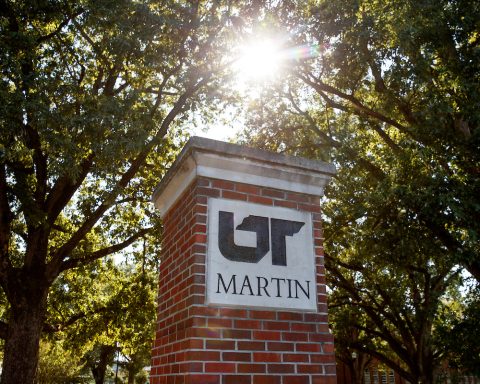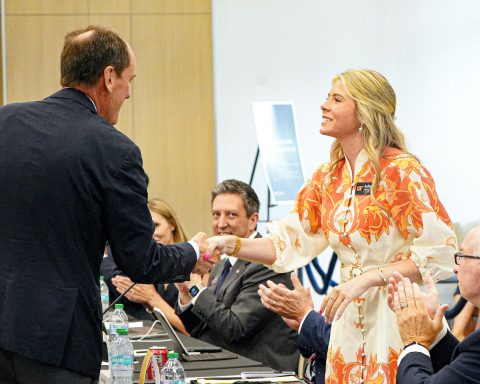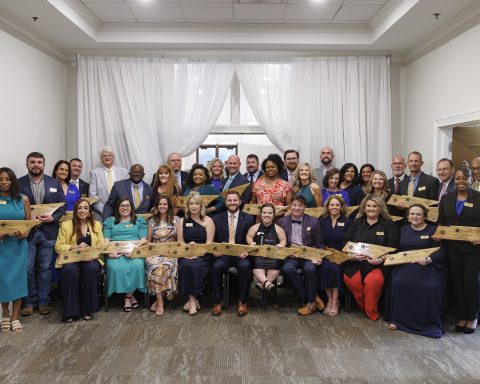The University of Tennessee at Martin Department of Agriculture and Applied Sciences took a leap forward in animal health instruction by acquiring cow and calf models for its classes.
The models are of a life-sized cow and a fully-developed calf fetus, and show complete reproductive tracts to help teach students how to assist with normal or abnormal bovine births.
The models can be placed in different positions so students can learn to extract the calf in different situations, something that can’t be recreated with live animals.
Dr. Jason Roberts, professor of animal science, said students can also learn how to give injections, pass tubes into the stomach and put on halters. He added that the model could be used by students at any level of study.
“What we try to do is give students experience with models first, then move on to live animals,” he said. “They can also be used in recruiting by doing demonstrations at 4-H and FFA events and promoting our teaching programs at events in the cattle industry.
“It’s a great addition to our teaching program. Hopefully, it will help to continue to develop professionals to work in these underserved large-animal areas.”
Roberts said financial support for buying the models came from a group of cattle owners.
“We had seen the models, and they were pretty pricey, but we had a group of cattle producers led by Mr. Johnny Woolfolk, who is a big supporter of our programs,” Roberts said. “He wanted to help us make these models happen for the students where they could get more experience with cattle and big animals to help serve the need for large-animal vets and veterinary health technicians.”
Woolfolk is a 1971 UT Martin agriculture graduate, a member of the UTM Advisory Board and the owner of Woolfolk Farms in Jackson. He reached out to his friends and colleagues to seek donations for the university’s College of Agriculture and Natural Resources and its veterinary health technology program.
“Most of you are keenly aware of the growing nationwide shortage of large-animal veterinarians that’s serving our livestock industry,” Woolfolk stated in the letter, adding that while the UTM vet health technology program has graduated 370 students since 2014, “the number of students with on-farm experience with large animals is fairly small.”
He said that one way to help students learn more about large animals would be the purchase of a life-sized cow model that has complete reproductive tracts and a fully developed calf fetus.
The university used two grants to pay for the models, which cost a total of $37,000: The Ag Tag Grant through the Tennessee Department of Agriculture valued at $25,000, and the Alliance of Women’s Philanthropists’ Giving Circle Grant valued at $8,400. The remaining $3,000 came through donations garnered through Woolfolk’s efforts and other donations.
Roberts credited Andy Holt, deputy commissioner of the Tennessee Department of Agriculture; Dr. Amber Moore, assistant professor of animal science, for her work with the Ag Tag grant; Dr. Diana Watson, assistant professor of animal science, for her work on the Alliance of Women’s Philanthropists grant; and Woolfolk and his fellow donors for their work in garnering the funding for the cow and calf models. Holt, a Weakley County native and former state representative, earned a Master of Business Administration degree from UT Martin in 2007.
PHOTO: Students from UT Martin gather around the cow and calf models at the UTM Student Cattleman’s Association meeting Feb. 6.

